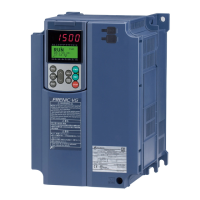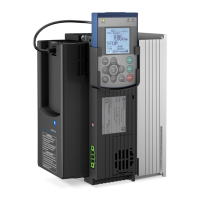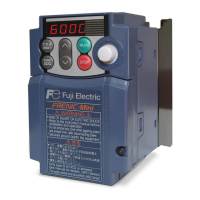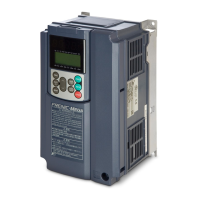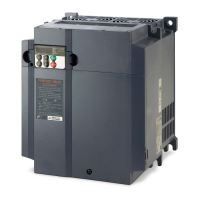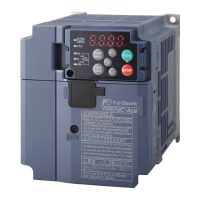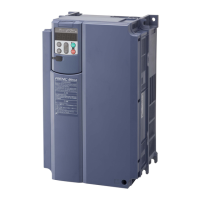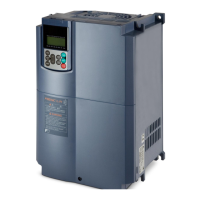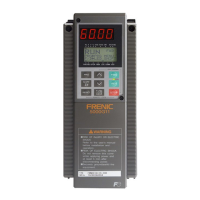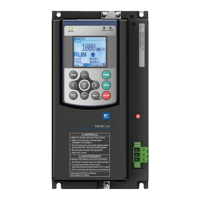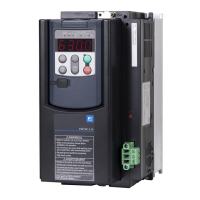7.1 Selecting Motors and Inverters
7-11
Chap. 7 SELECTING OPTIMAL MOTOR AND INVERTER CAPACITIES
7.1.3.3 Heat energy calculation of braking resistor
If the inverter brakes the motor, the kinetic energy of mechanical load is converted to electric energy to be
regenerated into the inverter circuit. This regenerative energy is often consumed in so-called braking
resistors as heat. The following explains the braking resistor rating.
[ 1 ] Calculation of regenerative energy
In the inverter operation, one of the regenerative energy sources is the kinetic energy that is generated at
the time an object is moved by an inertial force.
Kinetic energy of a moving object
When an object with moment of inertia J (kg·m
2
) rotates at a speed N
2
(r/min), its kinetic energy is as
follows:
)J(
)
60
N
2
(
2
J
E
2
2
x
x
S
(7.12)
)J(
N
J
4.182
1
2
2
xx
|
(7.12)'
When this object is decelerated to a speed N
1
(r/min), the output energy is as follows:
)J(
60
N
2
60
N
2
2
J
E
2
1
2
2
»
»
¼
º
«
«
¬
ª
¸
¹
·
¨
©
§
S
¸
¹
·
¨
©
§
S
xx
x
(7.13)
)J()
N
N(
J
4.182
1
2
1
2
2
| xx
(7.13)'
The energy regenerated to the inverter as shown in Figure 7.9 is calculated from the reduction-gear
efficiency K
G
and motor efficiency W
M
as follows:
)J(
NNJJ
4.182
1
E
2
1
2
2
M
G
21
| xxxx
KK
(7.14)
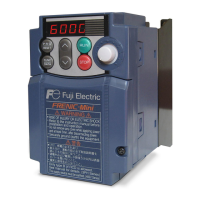
